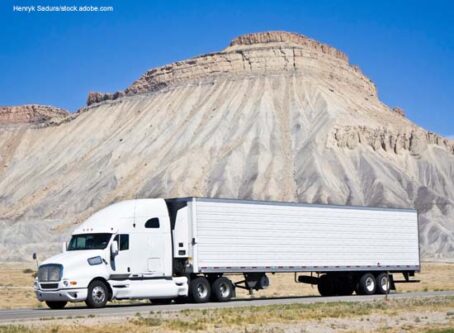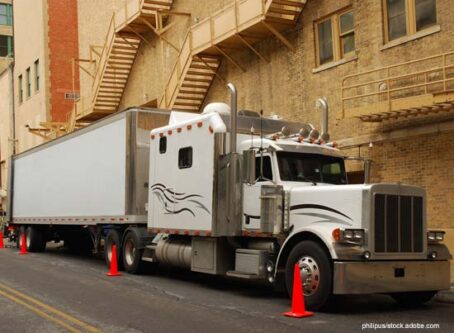Wyoming I-80 toll bill meets its demise
An effort in Wyoming to advance discussion of tolls did not survive more than 24 hours after the regular session was convened.
On their second day of work in Cheyenne, the state Senate voted 18-11 against introduction of a bill to tap tolls to cover costs for improvements to Interstate 80 in the state.
The margin of defeat in the chamber is misleading. Initially, the bill came up one vote shy of the two-thirds margin necessary for introduction. Multiple legislators responded by switching their votes to be in opposition.
The Joint Transportation, Highways and Military Affairs Committee previously filed the bill for consideration. The panel voted 7-6 in recent months to move forward with plans to help the state find the money needed for construction and maintenance of the heavily traveled east-west interstate highway.
WyDOT officials say that something needs to be done to help the agency address the $40 million shortfall just to maintain the highway. Agency officials say I-80 also needs additional climbing lanes, more truck parking and the reconstruction of its interchange with I-25 in Cheyenne.
Similar legislation has been considered at the statehouse in the past decade, but each effort has failed to gain support in both chambers.
This year’s effort, SF6, called for having the state Department of Transportation come up with a master plan to toll the 400-mile thoroughfare in southern Wyoming. According to a fiscal note attached to the bill, the agency would need to come up with between $1 million and $1.25 million to develop a master plan.
“The tolled configuration will allow Interstate 80 to be maintained and to be operated in a way that will reduce traffic congestion, delays, hazards, injuries and fatalities,” the bill read.
Sen. Michael Von Flatern, R-Gillette, said specific details of the toll plan, rates, or where tolls would be collected would not be included in the bill. The master plan would determine the details.
“It is requesting a bill for a future legislature to bring back and have these items included, but not limited to why they need to toll this road, and how they will exempt Wyoming registered vehicles, … and where they will toll. … We don’t know yet but we will debate that in the future,” Von Flatern said while speaking on the bill prior to the floor vote.
Truckers voiced opposition to I-80 toll plan
The Wyoming Trucking Association previously testified against the tolling effort. The group noted that carriers would use alternative routes to avoid tolls, and would cause businesses along I-80 to lose money.
Truckers in the state, and the Owner-Operator Independent Drivers Association, add that professional drivers already pay multiple taxes and fees to access I-80 and other roadways.
“To be clear, OOIDA fundamentally opposes toll roads,” OOIDA President and CEO Todd Spencer wrote in communication with the state legislature’s transportation committee. “However, toll roads are more egregious when they are proposed for existing highway capacity.”
Spencer further cautioned legislators about any tolling scheme that would target out-of-state truckers.
“This would potentially run afoul of the Commerce Clause of the U.S. Constitution,” he said. “Meaning, that is the legal argument OOIDA would use as the foundation for a lawsuit against the state.”
Spencer urged legislators to come up with a more practical solution to secure additional revenue for roads and bridges.
“At 24 cents per gallon, Wyoming’s state fuel tax is among the lowest in the nation. A modest increase in the state fuel tax is a more appropriate, cost-effective, and equitable solution.”
Fuel tax instead of tolls
Focus on transportation funding at the statehouse now shifts to a bill to raise fuel taxes.
The state’s current tax rate of 24 cents per gallon is unchanged since 2014.
Introduced by the Joint Revenue Interim Committee, the bill would adjust the taxes on gas, diesel and alternative fuels based on the consumer price index. The changes would be implemented on July 1, 2020.
WYDOT reports more than $135 million in unfunded operating expenses. The amount includes $73 million in construction and maintenance.
HB63 would raise the tax rates by 3 cents to 27 cents per gallon.
The change is estimated to raise $20 million annually for state and local roads, according to a fiscal note attached to the bill.
Advocates acknowledge the additional fuel tax collection would not satisfy the shortfall, but they say it is a step in the right direction.









